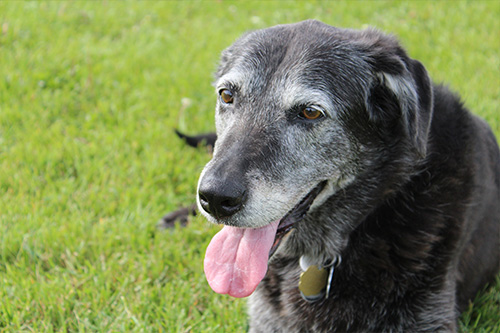
If your cat or dog is 7 years old or older, he/she is entering their senior years. To find out how old your cat or dog is in human years click here! Many health problems common to senior pets do not cause symptoms until they become seriously ill. At Huntington Animal Hospital we recommend senior care testing to help identify problems early enough to institute preventive healthcare plans. Senior care testing is recommended in any cat or dog who is displaying one or more of the following symptoms: weight loss or gain, increased thirst or urination, lethargy, vomiting/diarrhea, poor hair coat, coughing, seizures, unusual behaviour, or overall decline in condition.
At Huntington Animal Hospital we take pride in caring for our senior pets and do our best to ensure an exceptional quality of life for as long as possible. Our veterinarians are certified in veterinary acupuncture and rehabilitation in order to provide integrative veterinary care to each and every one of our patients.
Huntington Animal Hospital is trained and equipped to perform the following tests on your senior pet:
A physical exam is the most important part of the senior care program. We thoroughly examine your pet for abnormalities, dental health, skin and fur coat quality, hydration, muscle quality and evidence of pain.
Serum chemistry tests measure levels of various substances in your pets blood. These substances help evaluate organ function and help diagnose diseases such as diabetes, and liver and kidney disease.
A complete blood count (CBC) provides a detailed look at the cells in the blood, for example red and white blood cells. Changes can diagnose anemia or infection.
Urinalysis provides information on kidney function, urinary bladder health and checks for urinary tract infections.
A thyroid screen helps diagnose thyroid disease. Older animals are prone to under and overactive thyroid function.
Glaucoma testing measures the pressures in each eye quickly and painlessly using a tonometer. Undetected glaucoma can lead to irreversible blindness or chronic pain.
Blood pressure measurement is important to identify hypertension. High blood pressure can cause kidney problems, heart disease, blindness, and other complications.
Radiographs (X-rays) are performed to assess size and position of internal organs. Changes in the size and/or position of an organ can suggest disease and can be used to monitor the progression of certain diseases.
FeLV/FIV testing is recommended for some senior cats. This tests for the feline leukaemia and feline immunodeficiency viruses, which can suppress a cat’s immune system and lead to secondary infections, anemia, and cancer.

